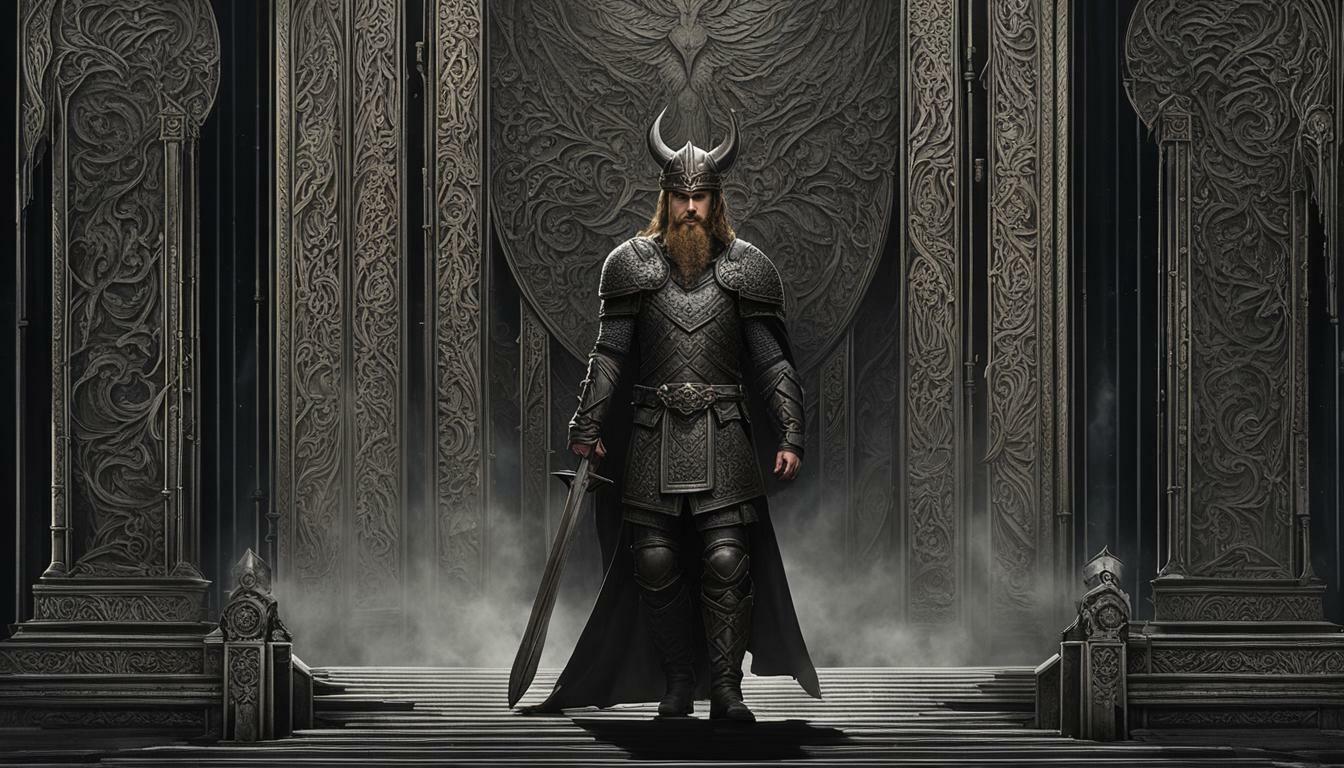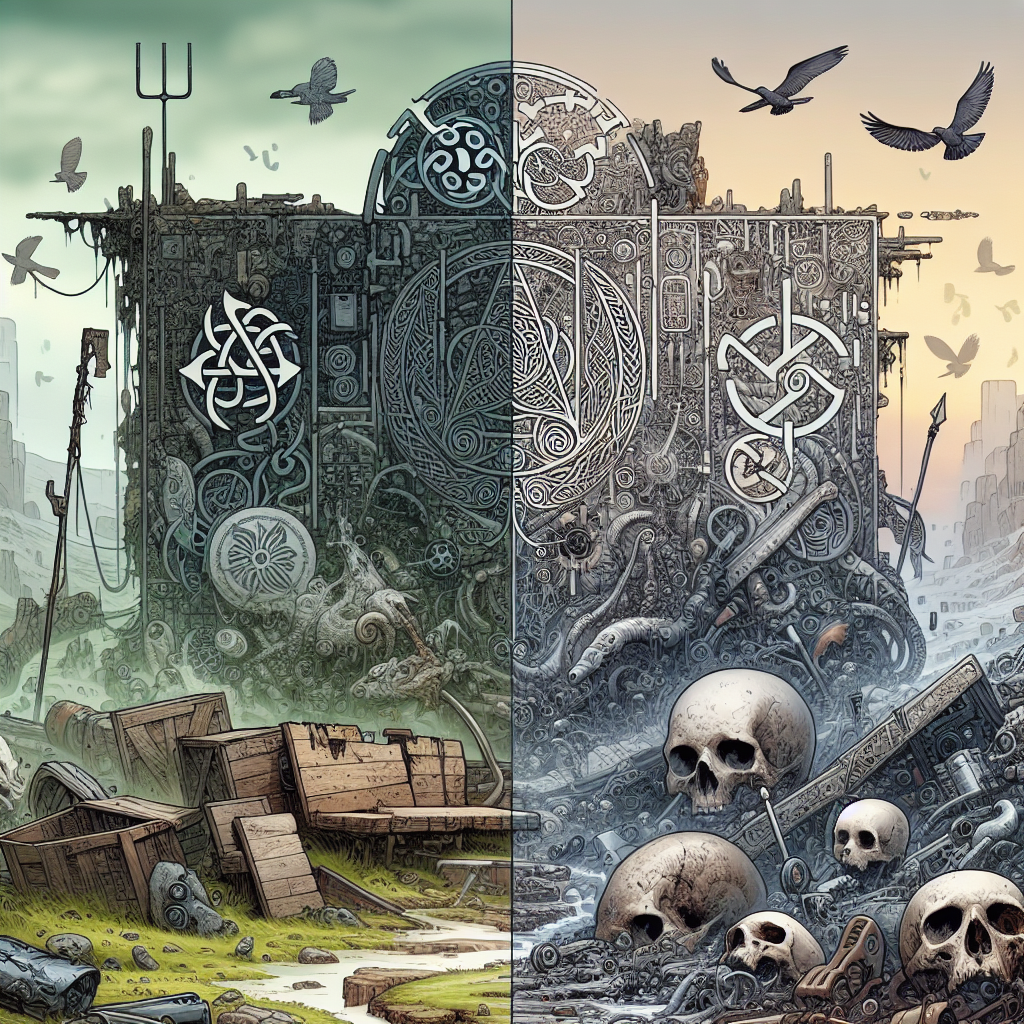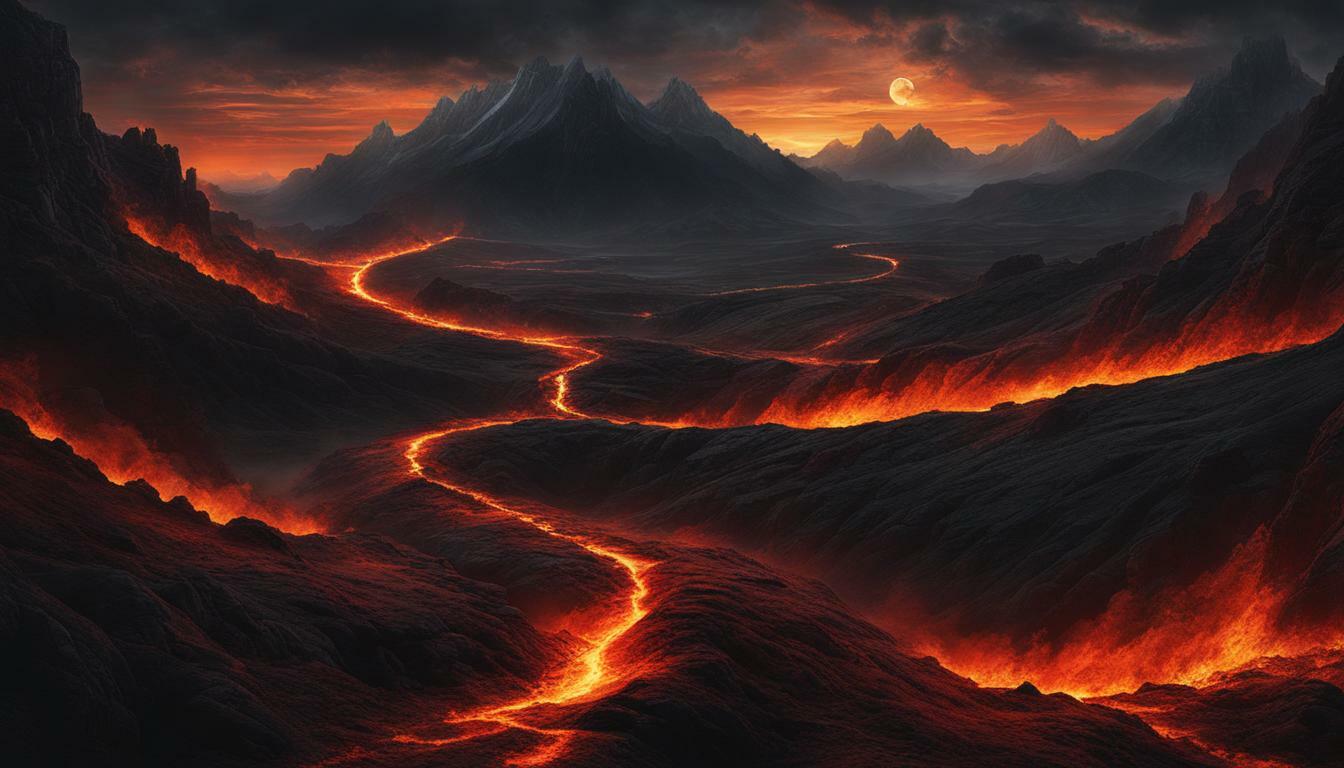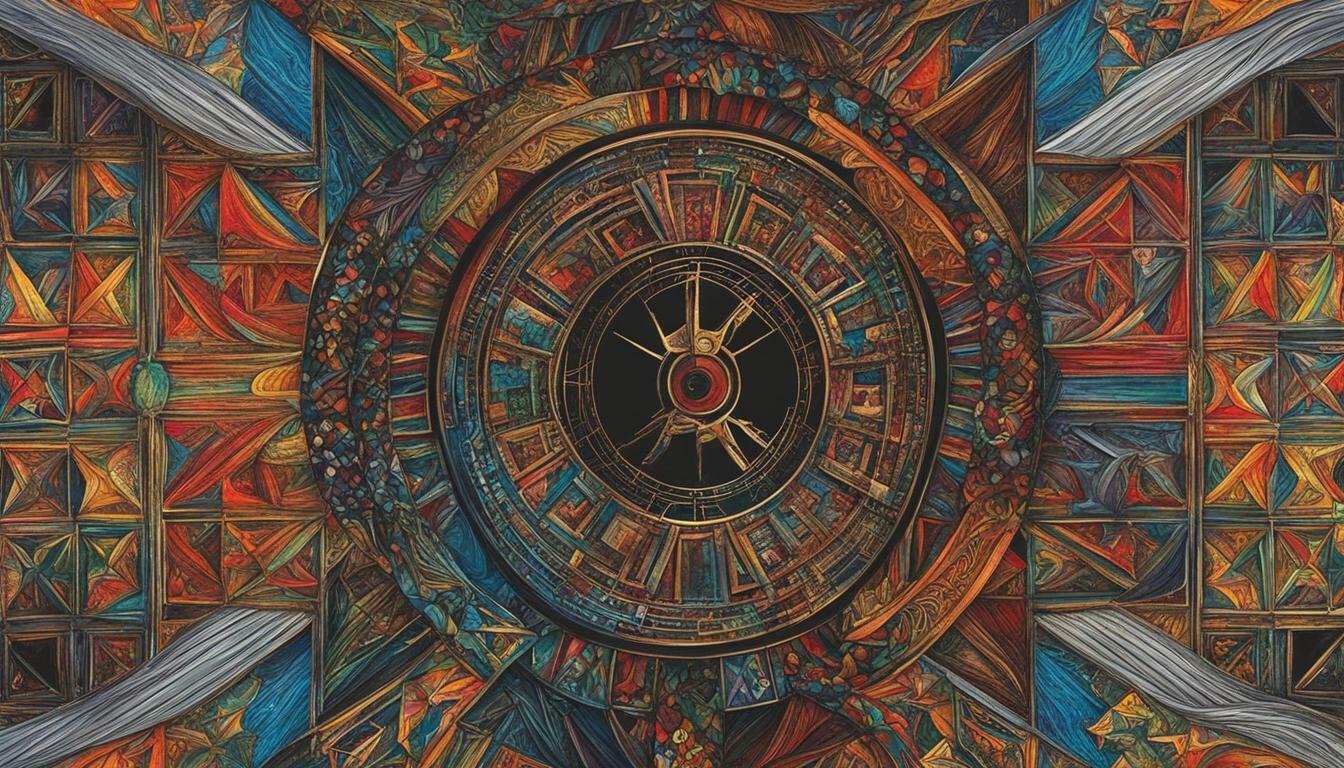Death has always been a mystery that has fascinated and troubled people of all cultures. While different cultures have varying beliefs about what happens after we die, some ideas have become widely recognized and ingrained in the collective imagination.
In this article, we will explore the fascinating concept of the afterlife in two distinct belief systems: Norse mythology and Christianity. Specifically, we will delve into Valhalla and Heaven, two realms that represent very different ideas about what happens to us after we die.
Key Takeaways:
- Valhalla and Heaven represent two very different concepts of the afterlife, reflecting the diversity and richness of myth and spirituality.
- Valhalla is a mythical hall in Norse mythology, where fallen warriors are chosen to reside in an afterlife filled with glory and honor.
- Heaven is a place of eternal bliss and communion with God, where souls are rewarded based on their faith and deeds.
- Valhalla and Heaven differ in their nature, purpose, criteria for entry, and cultural implications and influence.
Valhalla in Viking Belief
In Norse mythology, the afterlife was viewed as a continuation of the warrior’s life and was believed to be a place of honor, glory, and strength. The Vikings believed that those who died in battle would be selected by the Valkyries and taken to Valhalla, a grand hall situated in Asgard, the home of the gods.
Valhalla was reserved for the bravest and most honorable warriors, who would spend their days feasting and drinking mead while preparing for the ultimate battle – Ragnarok. The Norse concept of an afterlife is vastly different from the Christian notion of Heaven as Valhalla emphasizes strength, courage, and skill in battle as essential for gaining entry, while Heaven rewards faith and virtuous deeds.
The Viking afterlife was also characterized by various challenges and obstacles that a warrior must overcome before being chosen for Valhalla. These included death in battle, pleasing the Valkyries, and proving one’s worth through strength and bravery. The Viking concept of an afterlife demonstrates the importance of bravery and valor in Viking culture, as well as a desire to achieve eternal glory even in death.
Heaven in Christian Belief
Heaven is a central concept in Christianity, representing the ultimate destination for believers after death. According to Christian doctrine, Heaven is a place of eternal bliss and perfect communion with God, free from sin, suffering, and death.
The Christian concept of the afterlife emphasizes the importance of faith and good deeds for entry into Heaven. In this view, salvation is attainable for those who have accepted Jesus Christ as their savior and lived a moral and virtuous life. Those who have lived a life of sin and unbelief are believed to be condemned to eternal damnation, in contrast to the reward of Heaven.
Christianity’s concept of the afterlife has influenced art, literature, and cultural values throughout history. The idea of earning a place in Heaven has been a driving force behind many Christian individuals and societies, spurring them to devote their lives to good works and charitable acts.
Differences in Nature and Purpose
Valhalla and Heaven are two distinct realms that differ in their nature and purpose. While Valhalla is viewed as a hall of warriors in Norse mythology, Heaven is considered a place of reward for Christians who have lived a virtuous life.
| Valhalla | Heaven |
|---|---|
| The hall of the slain where dead warriors go after battle | A place of eternal happiness and communion with God |
| Only the bravest and most honorable warriors are chosen to enter | Christians who have lived a virtuous life and accepted Jesus as their savior may enter |
| The purpose is to continue to fight and feast in preparation for Ragnarok | The purpose is to be in the presence of God and experience eternal happiness |
The differences between Valhalla and Heaven reflect the contrasting beliefs and values of Viking societies and Christian communities. While warriors in the Viking culture were honored for their bravery and prowess in battle, Christians believed in a higher power who rewarded individuals for living a virtuous life and following a set of moral guidelines.
These differences in nature and purpose also highlight the diversity and richness of myth and spirituality, showing how different cultures and belief systems offer unique perspectives on the afterlife.
Challenges and Obstacles Faced
Aspirants to Valhalla and Heaven face different challenges and obstacles on their journey towards the afterlife. The criteria for entering these realms vary significantly, reflecting the contrasting beliefs and values of Viking mythology and Christianity.
In Viking belief, those who die a heroic death in battle are deemed worthy to enter Valhalla. They must demonstrate courage, strength, and bravery on the battlefield, proving their worthiness to their gods. Once in Valhalla, they enjoy endless feasting, drinking, and fighting. However, not all fallen warriors make it to Valhalla; those who die of old age or illness are deemed unworthy and relegated to the realm of Hel.
On the other hand, in Christian belief, the criteria for entering Heaven are based on faith and deeds. Only those who have accepted Jesus Christ as their savior and lived a life of righteousness and good deeds are deemed worthy to enter Heaven. The path to Heaven involves overcoming the temptation of sin and resisting the devil’s wiles. To enter this realm, individuals must lead a life of constant devotion to God, following His commandments and living a life of service to others.
Thus, the challenges and obstacles faced by aspirants to Valhalla and Heaven are vastly different. While the former requires bravery and courage in battle, the latter demands a life of faith and righteousness. Valhalla represents a warrior’s paradise, where battle is eternal and glory is everlasting. Heaven, on the other hand, symbolizes the ultimate reward for a life lived in service to God.
Valhalla vs Heaven, Valhalla and Heaven compared
Comparing Valhalla and Heaven offers insight into the contrasting beliefs and values of Viking mythology and Christianity. Valhalla emphasizes the importance of battle, strength, and courage, while Heaven prioritizes faith, righteousness, and service to others. The afterlife in Valhalla is one of eternal glory, with endless feasting, drinking, and fighting. In contrast, Heaven represents the ultimate reward for a life lived in accordance with God’s will, where souls enjoy eternal bliss and communion with their Creator.
Cultural Implications and Influence
The belief in an afterlife has played a significant role in shaping the cultural values and traditions of many societies throughout history. Both Valhalla and Heaven have had a profound impact on the beliefs and practices of Viking and Christian communities, respectively.
The Norse concept of afterlife, centered on Valhalla, reflects the Viking ideals of honor, bravery, and strength. This belief system influenced Viking society, leading to a culture of warfare, exploration, and conquest. The idea of an afterlife filled with glory and reward for fallen warriors served as a motivation for many Vikings to die in battle and secure their place in Valhalla.
On the other hand, the Christian concept of afterlife, centered on Heaven, emphasizes the importance of faith, righteousness, and compassion. This belief system has influenced Christian communities, leading to a culture of charity, forgiveness, and benevolence. The idea of an afterlife where souls are rewarded based on their faith and deeds served as a motivation for many Christians to lead a life of virtue and service.
The differences between the Norse mythology afterlife and the Christianity concept of afterlife have also led to contrasting views on death and dying. While Vikings celebrated the death of warriors who died in battle, Christians mourned the passing of their loved ones and sought comfort in the hope of reunion in Heaven.
The impact of these beliefs on culture and society can still be seen today. The themes of honor, bravery, and exploration in Viking culture have inspired literature, art, and media, while the themes of faith, righteousness, and charity in Christian culture have influenced philanthropy, social justice, and humanitarianism.
The Influence of Valhalla and Heaven in Contemporary Culture
The concepts of Valhalla and Heaven continue to inspire contemporary culture, from films and television shows to video games and music. The adventurous spirit and warrior ethos found in Viking mythology is evident in popular genres like fantasy and science fiction.
Similarly, the themes of redemption, salvation, and divine grace found in Christian theology continue to inspire contemporary music, literature, and media. Many musicians, authors, and filmmakers have explored these themes in their works, highlighting the enduring influence of Christian culture on society.
Overall, the concepts of Valhalla and Heaven offer unique and diverse perspectives on the afterlife, reflecting the richness and complexity of human spirituality and imagination.
Conclusion: Exploring the Difference Between Valhalla and Heaven
Through our exploration of Valhalla and Heaven, we have discovered distinct differences between these two realms of the afterlife. Valhalla represents the Viking belief in an afterlife of bravery and glory, where warriors who have fallen in battle are chosen by Odin to reside. In contrast, Heaven symbolizes the Christian concept of eternal bliss and communion with God, where souls are rewarded for their faith and deeds.
While these two concepts of the afterlife may seem vastly different, they both offer unique perspectives on life after death. Their narratives and characteristics reflect the diversity and richness of mythology and spirituality throughout history.
Difference between Valhalla and Heaven
Valhalla and Heaven differ in their nature and purpose, as well as the criteria for entrance. Valhalla is a place of honor and glory for warriors who have fallen in battle, while Heaven is a place of eternal bliss and communion with God. The requirements for entrance also differ, with Viking belief focusing on bravery and honor in battle, while Christian doctrine emphasizes faith and good deeds.
Despite their differences, Valhalla and Heaven have both shaped the beliefs, values, and traditions of Viking societies and Christian communities throughout history. These concepts continue to influence popular culture, with references to Valhalla and Heaven appearing in literature, film, and other forms of media.
In conclusion, our exploration of Valhalla and Heaven has shed light on the distinct differences between these two concepts of the afterlife. While they may seem vastly different, both offer unique perspectives on life after death and continue to shape the beliefs and values of cultures around the world.
FAQ
Q: What is Valhalla?
A: Valhalla is a mythical hall in Norse mythology. It is believed to be the afterlife for fallen warriors, where they are chosen to reside in a place of honor and glory.
Q: What is Heaven?
A: Heaven is a concept in Christian belief. It is a place of eternal bliss and communion with God, where souls are rewarded based on their faith and deeds.
Q: What are the differences between Valhalla and Heaven?
A: Valhalla and Heaven differ in nature and purpose. Valhalla is associated with bravery and honor in Viking belief, while Heaven represents eternal bliss and communion with God in Christian belief.
Q: What are the challenges and obstacles faced in reaching Valhalla or Heaven?
A: The requirements for entering Valhalla or Heaven differ based on the belief system. Viking belief focuses on bravery and honor in battle, while Christian doctrine emphasizes faith and righteous living.
Q: How have Valhalla and Heaven influenced cultures throughout history?
A: Valhalla and Heaven have had significant cultural implications and influence. They have shaped the beliefs, values, and traditions of Viking societies and Christian communities, contributing to the diversity and richness of myth and spirituality.
 Skip to main content
Skip to main content


